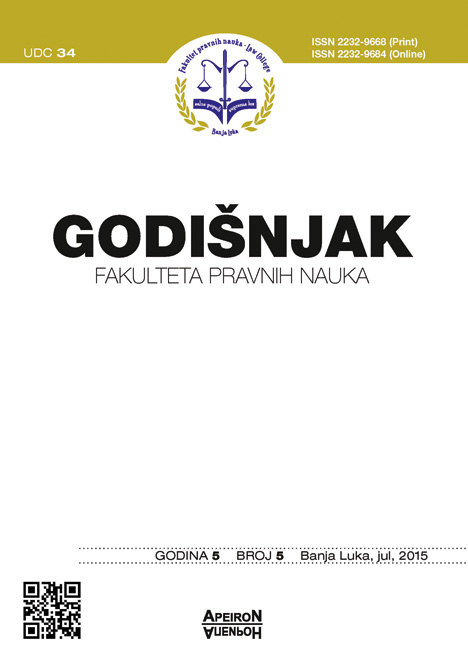Parole Criminal Law And Practice Of The Republic Of Srpska / Primjena uslovnog otpusta u Republici Srpskoj
DOI:
https://doi.org/10.7251/GFP1505005MAbstract
Conditional release of the convicted person is an important and almost all modern criminal systems applicable criminal law, criminal policy and penalty doctrine, which has a very important role from the viewpoint of a particular impact on the convicted person in terms of its further re-socialization, or repair, now in a new, changed circumstances in compared to the one which housed while in the correctional institution. Thus, in the Republic of Srpska, where, according to Article 154, Paragraph 1 of the Law on Execution of Criminal Sanctions Srpska, convicted persons for which it is reasonable to expect that he would not do the crimes, and was sentenced achieve the purpose of punishment can expect a conditional discharge from a criminal correctional institutions in accordance with the provisions of the Criminal Code of the Republic of Srpska, certainly to encourage their personal efforts to engage in life at large. It is on conditional release and its specific characteristics in general, and in particular the Institute of parole in the codes of the Republic of Srpska (Bosnia and Herzegovina) will be discussed in this paper.Downloads
Published
2015-07-28
Issue
Section
Чланци
